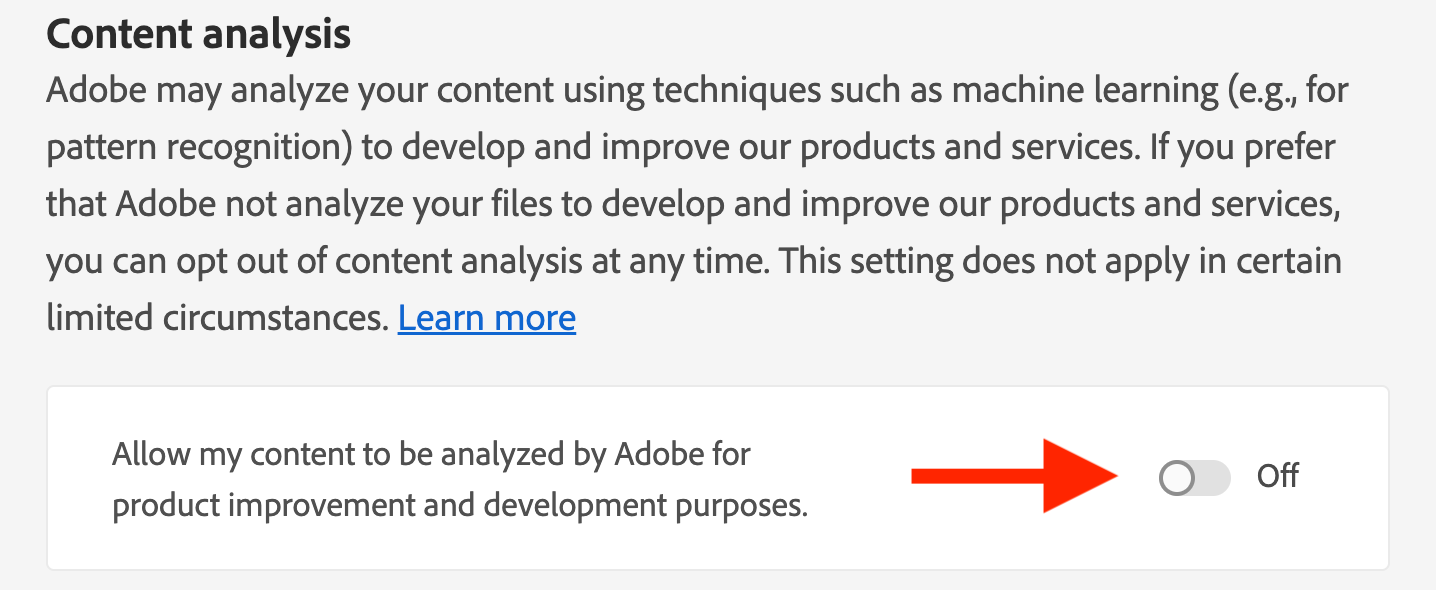Quick Links
If you use Adobe products with cloud storage or backup, like Photoshop or Lightroom, the company may be using your data to train machine learning algorithms. Here's how to opt out.
Adobe explains on its website that the company "may analyze your Creative Cloud or Document Cloud content to provide product features and improve and develop our products and services." The scanned data may include images, audio files, video, text, or other documents stored in Creative Cloud or synchronized between devices.
Adobe says that the analysis only runs "on content processed or stored on Adobe's servers," so in theory, editing local Photoshop files or using Lightroom Classic with a local library shouldn't result in your images being scanned. The machine learning is used to train object recognition in Lightroom, Liquid Mode in Acrobat, and other similar features, which is all fine -- if Adobe had asked first. Adobe is vague about how it could use data collected through AI in the future, but the company is already experimenting with generative AI.
How to Turn Off Content Analysis
Thankfully, turning off Adobe's AI-powered content analysis is a quick process. Go to account.adobe.com/privacy in your web browser -- if you're not logged in already, Adobe's site will ask you to do that first. Then scroll down to "Content analysis" and set the switch to "Off."
Adobe notes that it may still "manually review your content" in specific situations, such as content that is made public (like uploading to Adobe Stock or the featured section on Adobe Express), participating in a beta or early access problem. However, images you keep for your own private use should be safe.


